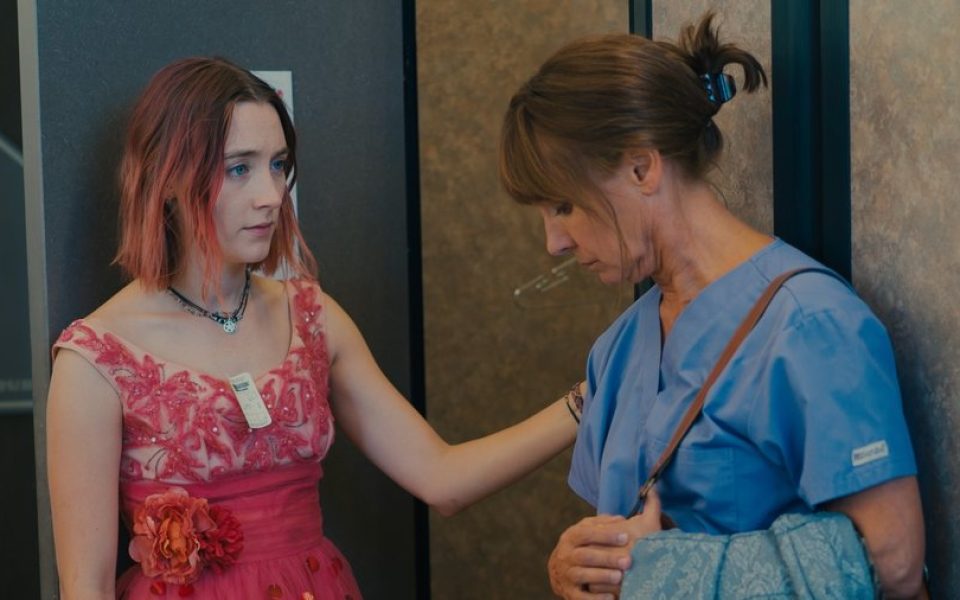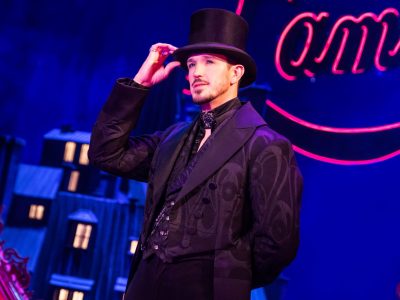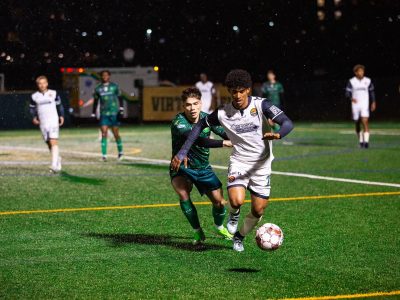Women comprised only 7 percent of directors who worked on the 250 highest-grossing films in 2016, according to a recent report from the Center for the Study of Women in Television and Film; but luckily idiosyncratic actress, screenwriter and director Greta Gerwig is among them.
Gerwig — known for starring in and co-writing Frances Ha (2013) and Mistress America (2015) with her partner Noah Baumbach — released Lady Bird, her debut film as solo director-writer on Nov. 3. The film follows one restless year in the life of 17-year-old Christine “Lady Bird” McPherson (Saoirse Ronan), a senior at an all-girls Catholic high school in Gerwig’s hometown of Sacramento, Calif. beginning in 2002. The year is long enough ago to feel distant but not unfamiliar, with wealthy kids packing clunky cell phones and the latest news from the burgeoning war in Iraq consuming television news.
As Lady Bird’s father (Tracy Letts) grapples with job loss and depression, her mother (Laurie Metcalf) tries to hold the family together, working double shifts as a nurse. Metcalf’s embodiment of a formidable yet vulnerable Marion McPherson is brilliant; she strikes impressive balance between bursts of a short temper, passive aggression and warmth. These inner tensions leave audiences to sympathize with her inability to verbalize the anxiety about her daughter’s imminent departure from the nest and the pain of Lady Bird already distancing herself by rejecting her birth name, Christine.
Lady Bird’s self-anointed moniker suggests a desire to fly away to the Northeast, where — according to her — writers live in the woods. The subtle nod to JD Salinger is illustrative of Lady Bird’s wistful yearnings for something unlike her experience in sunny, flat Sacramento, which she not-so-affectionately calls “the Midwest of California.”
But she didn’t necessarily earn the grades to fly so far, and isn’t afraid to cut class to discuss bath- and shower-based masturbation techniques while snacking on stolen communion wafers with her best friend Julie (Beanie Feldstein). Lady Bird feels absent of the male gaze, but over the course of the film, Lady Bird navigates young love and sexuality with an endearing theater club boyfriend Danny (Lucas Hedges) and later Kyle (Timothée Chalamet), who is in a band, refuses to smoke industrially-produced cigarettes and keeps a copy of Howard Zinn’s People’s History of the United States close.
[pullquote]View Lady Bird at Aperture Cinema, 311 W. Fourth Street (W-S) and learn more at aperturecinema.org. [/pullquote]
Notably, the younger actors don’t condescend to their adolescent characters. Comedy is best when characters aren’t in on the joke, after all. Even when theatrical — in the first five minutes of the film, Lady Bird throws herself from a moving car to remove herself from an argument with her mother shortly after they share tears listening to a cassette of The Grapes of Wrath — each actor comes at their role from an emotionally sincere place, and the drama captures the intensity of Lady Bird’s angst and fervent energy and she tries molding herself to those around her despite her comfort with her scraggly, fading neon-red dyed hair, thrift clothes and Mary Jane Doc Martens.
In this and other ways, Gerwig gracefully dodges the trappings and clichés of the rose-colored coming-of-age genre as well as the hyper-awareness of Mean Girls. Sure, Lady Bird ditches her dorky best-friend for a more popular circle, but the formula would have us demonize affluent Jenna (Odeya Rush) whose skin is as impeccable as her uniform skirt is short, but Gerwig isn’t interested in female characters without complex inner lives, and it makes a huge difference.
Teen girls, particularly white teen girls, are highly represented in film, but more often as sexual objects, target of ridicule or pseudo-protagonists who exist to move the plot or help a male-protagonist on his quest; Lady Bird mirrors our full humanity back to us, and opens audiences to a grounded account of a working-class experience in what feels like a small town. While Lady Bird is unquestionably paying homage to Gerwig’s hometown of Sacramento, it is also a nuanced love letter to teen girls with acne and the women who raise them. The film is no longer than it needs to be and is so deeply rooted in time and place that it succeeds in offering universal meaning. Like many of us on our journey to ourselves, Lady Bird realizes she can’t quite escape the city or the family she comes from and that, maybe, she no longer wants to.
Join the First Amendment Society, a membership that goes directly to funding TCB‘s newsroom.
We believe that reporting can save the world.
The TCB First Amendment Society recognizes the vital role of a free, unfettered press with a bundling of local experiences designed to build community, and unique engagements with our newsroom that will help you understand, and shape, local journalism’s critical role in uplifting the people in our cities.
All revenue goes directly into the newsroom as reporters’ salaries and freelance commissions.





Leave a Reply